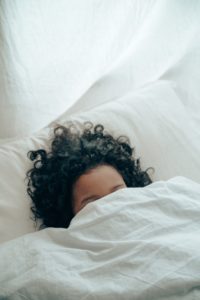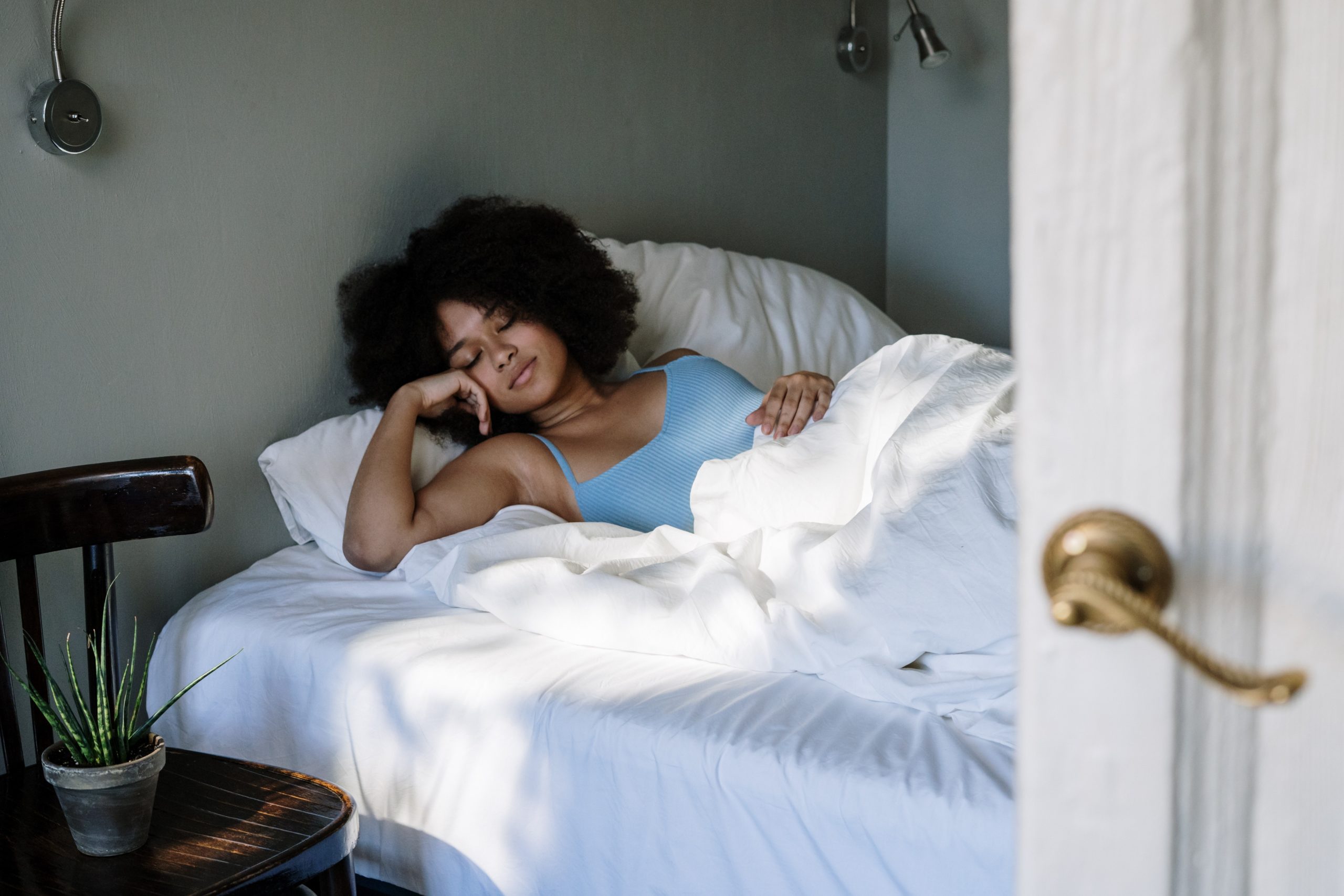50-70 million adults in the US say they have trouble getting a good night’s sleep. This simple and essential part of life is so crucial for our overall health and wellbeing, causing mental and physical symptoms should we not get enough of it, or have consistently poor quality sleep over extended periods of time.
With over 20% of the population struggling to sleep, just what is it that makes sleep disorders so prevalent? Modern lifestyles have a lot to answer for when we consider the rise in cases of sleep deprivation and disorder. So much time spent on screens exposed to blue light disrupts our circadian rhythm, the sophisticated inner timer that intelligently responds to light and helps our bodies know when it’s time to wake up and sleep. As we’re encouraged to be more ‘switched on’ all the time, it becomes harder to switch off – especially when it’s time to sleep. As a rule of thumb most adults need between 6-8 hours of good quality sleep every night – but it’s important to note that ‘good quality; sleep looks different to all of us – our bodies need different amounts of sleep depending on our age and lifestyle.
Often sleep issues can be characterized by two main concerns – trouble getting to sleep, and trouble staying asleep.
How can lack of sleep affect us?
Sound, restful sleep is essential in order for our bodies to function optimally. When we don’t get enough of it, all systems within the body can be affected. Symptoms of long-term sleep disruption include:
Weaker immune system: Our immune system’s function is closely linked to how well we sleep. For it to work at full capacity, we need to be sleeping enough and sleeping soundly each night.
Mood swings: Depression and mood disorders can be linked to or worsened by lack of sleep. When you haven’t slept properly the night before, or have had a run of bad nights, you’re more prone to feeling listless, sad, despondent and anxious.
Irritability: Lack of sleep exacerbates stress and anxiety levels in the body, making us more prone to irritability throughout the day. Often when this is noticed by family, friends or co-workers it only makes the problem worse, as you develop anxiety around your frustrations and the lack of sleep driving them.
Weight gain: Sleep disruption can impact on your eating habits, causing you to lose (or more commonly) put on weight. When we’re sleep deprived our blood sugars and metabolism are affected, causing misplaced hunger and cravings for processed, refined foods. Sufferers of insomnia may even find they’re snacking more at night to while away the hours.
Feeling tired all the time: This may go without saying – but you may also feel if you don’t have good quality sleep that you never feel refreshed, even when you have just woken up. This is often prevalent with longstanding sleep disorders, as ‘sleep debt’ builds up over time, making up chronically tired.
Sleep disorders according to your dosha type
As is the case with all things in Ayurvedic medicine, any symptoms or concerns presented by patients can be traced back to an imbalance within their doshas (find out more about doshas and determine your unique dosha type here). An Ayurvedic approach therefore will take into account your dosha type (or prakriti), and work to determine where you are experiencing an imbalance and why.
Vata and Pitta doshas are notoriously linked with low quality sleep – insomnia is often caused by an excess of either one of these, or both.
 Ayurvedic sleep support
Ayurvedic sleep support
There are a number of tools Ayurvedic practitioners can use to help you to get a better night’s sleep. Usually they’ll combine several therapies and remedies depending on your situation.
Some of the most popular Ayurvedic treatments for sleep deprivation and insomnia include:
Herbal supplements
Herbal supplements are commonly used tool in Ayurvedic medicine – and there are thousands at the disposal of an Ayurvedic practitioner when diagnosing and treating ailments. Two star herbs for insomnia include Brahmi and Ashwagandha. As an adaptogen, Ashwagandha actively works within the brain to balance chemicals through interacting with neurotransmitters. It is commonly used to treat stress and anxiety, but its active compound Triethylene Glycol has been found to have sleep-inducing qualities. Meanwhile Brahmi soothes the central nervous system and tranquilizes Vata dosha to promote a sense of calm and relaxation.
Massage
Massage is also widely used in Ayurvedic medicine as it has myriad benefits for body and and mind. Two distinct types of massage, Shirodhara and Abhyanga, can be useful for promoting healthier sleep. Shirodhara concentrates on the head, neck and shoulders, whilst Abhyanga is a whole-body massage treatment. During both the practitioner will select specific herbal oil blends tailored to your concerns.
Detox (panchakarma)
When the body is experiencing a build-up of excessive toxins, sleep can be affected. In Ayurveda we use a detox method called Panchakarma for all-round restoration and healing.
 The importance of practicing proper sleep hygiene
The importance of practicing proper sleep hygiene
Alongside any Ayurvedic approach, your practitioner may recommend developing some better habits around your sleep routine to support your treatment. These include:
No phones before bed: It can be tempting to check our phones right before we sleep – but often we can then get quickly sucked in to a cycle of scrolling which exposes our brains to large amounts of blue light, affecting our ability to sleep. Put your phone away (preferably out of the bedroom) at least an hour before you plan to sleep. Swap out screens for a good book, a magazine or some kind of activity such as knitting or sketching.
Light exercise: Movement is key for healthy sleep. Be sure to get at least 20 minutes of moderate exercise each and every day, whether you go for a walk, a jog, for a gym session or class. Gentle movement such as yoga or Pilates before bed can also be beneficial.
Remove or limit caffeine: Caffeine consumption can be incredibly disruptive for our sleep patterns – coffee especially. Cut out caffeine altogether, or swap your daily coffee for tea, which contains mitigating compound l-theanine to support a slower release of energy. Never consume caffeine of any kind after 3pm.
Sunlight: Expose yourself to sunlight as soon as possible each morning to help ‘wake up’ your body’s natural systems and promote a healthier circadian rhythm.
Wake up and go to sleep at the same times each day: Routine is the key to better sleep – so try to get into the habit of going to bed and waking up at the same times each day.
If you’re struggling to manage sleep deprivation symptoms on your own, be sure to seek out professional support. Before adding any supplements into your diet, please consult with your medical practitioner.






